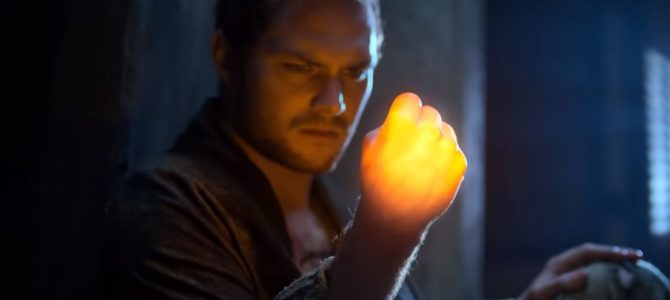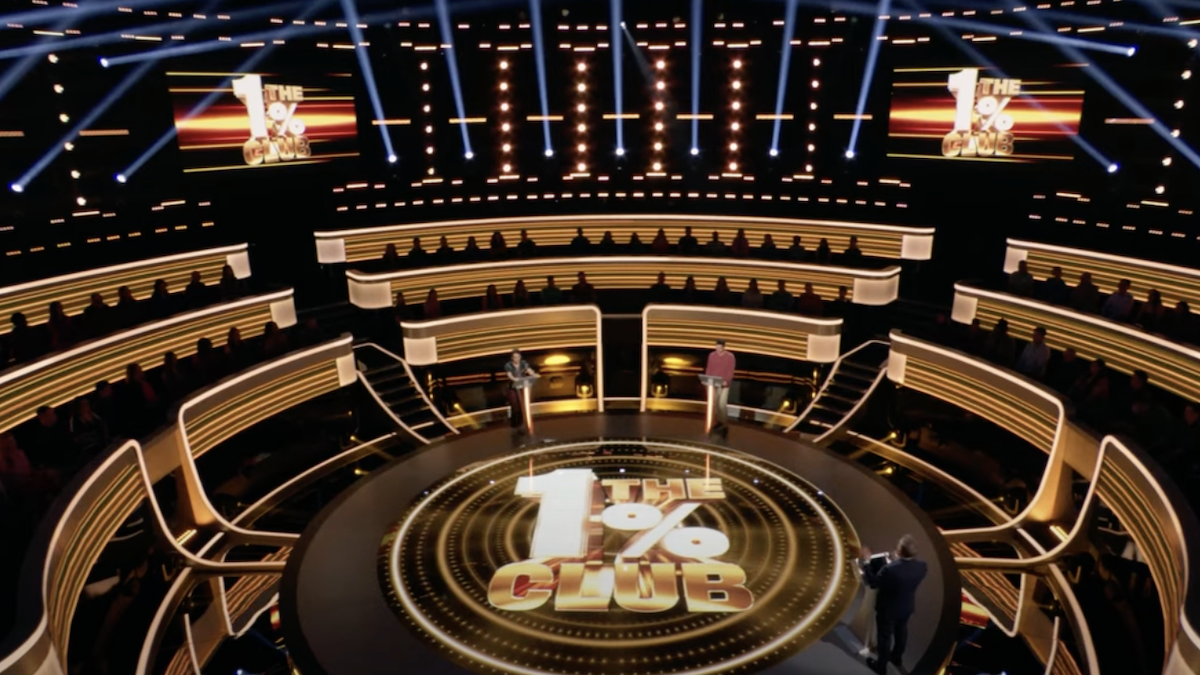
“Iron Fist,” the worst of the Netflix-Marvel shows, is back for a second season, which is almost as bad. It’s getting middling reviews, a significant improvement on the first season, but that only shows the pathetic situation.
Reviewers are accommodating what they confess is not great improvement. Audiences do not care about critical opinion, after all, and neither does Netflix, or else there wouldn’t have been a season two.
Netflix astutely refuses to release numbers by which to judge popularity and profitability, so critics cannot claim to be on the side of the people. We can only point out that this show is an embarrassment to storytelling. Nevertheless, the massive corporations that dominate our entertainment increasingly don’t care: The press is obsolete, replaced primarily by score aggregators.
Movies have to have good openings and make a lot of money. What does Netflix have to do? No one knows what accountability might mean in this case. Netflix apparently can afford to bankroll aggressively mediocre shows for season after season, because the markets worship CEO Reed Hastings like a new Moses.
He’ll lead them into the Promised Land, so they bet on him year after year, though he leads them through the desert of debt, failure to land hits, and fears about the paltry Netflix Original catalog failing to attract viewers as other corporations withdraw their properties. Now, that’s faith!
Compare Netflix with Disney. With Disney, Marvel hasn’t had a flop in ten years, because each movie is made with unusual care and they constantly recruit talent. On Netflix, Marvel shows are hit and miss at the best of times, not least because Netflix doubles down on misses as much as on hits. Unlike Disney, where Marvel executive extraordinaire Kevin Feige learned important lessons from early superhero failures—remember the two Hulk movies, of 2003 and 2008?—the Netflix motto seems to be: Admit nothing, learn nothing.
Here’s a Rundown of Hits and Misses
The new season adds the lovely Alice Eve as a villain. She’s demure at first, then deadly, and the only pleasant surprise. You get to hear her sing The Mamas And The Papas’ “Monday Monday” while preparing for atrocity. There are nice twists to her character, to give the actress a chance to show her range, but half the time she’s talking the standard tough-girl talk in an age where every story has to seem tough and serious by featuring yet another boring anti-hero.
It’s also good to see a concession to reality. Netflix bloat has been a problem for years, and now one of these 13-episode seasons is reduced to 10. It’s still too long, but three fewer hours of nonsense is a good beginning. The problems of the first season persist, however. The fights are hilariously bad, there is too much soap-opera psycho-drama, and we’re still stuck with a millennial fantasy that has nothing to do with the rest of the Marvel-Netflix heroes or their New York setting.
As for the storyline, hapless millennial Danny Rand returns from a mystical Asia to his native world: Manhattan wealth. His parents, who died in the plane crash that sent him to mystical Asia, were corporate giants. He’s a strikingly handsome twenty-something with magical powers! But sadly he’s caught up in his father’s heritage, trying to make his part of corporate America less evil, less exploitative of everything that breathes, and less of a soap opera.
He also tries hard to get back together with his childhood friends, and other people who share his superhero concerns. In the first season, he moonlighted as a hobo in Central Park. This is the kind of human interest story that will keep audiences on edge! Instead of a drama, you mostly get vaguely Buddhist-sounding lessons about self-overcoming.
The Fighting Is Baffling on Many Levels
The strangest thing about the story, however, is that you end up with countless magical ninjas. Nobody on this show seems to care in the slightest about the New York around them.
Unfortunately also for a show that’s all about martial arts, nobody can fight. “Daredevil” had superior fighting, because protagonist Charlie Cox worked hard to be able to do it. It didn’t hurt to hire talent behind the camera, either. They did all that glamorous, amazing work for a show that’s actually about the Catholic concern with human weakness and protection of the weak.
Shows that needed fighting more, like “Jessica Jones” and “Luke Cage,” were comparatively mediocre. These were stories about the lonely social struggles of feminism and of civil rights, where American society is set against our heroes, or at least indifferent. So they aimed to put some power behind the struggle for equality.
Now, we get to a show that’s all about martial arts, and it’s the worst of them all. They seem to have hired a male model instead of a martial artist. The guy’s not much of an actor, and he hasn’t bothered to learn more about fighting for his second season, either. This is baffling. Where’s the Eastern honor, the utter control of the body, if the hero’s all frowning faces and curly blond locks?
Most baffling of all, this is an easily solved problem. The makers of “The Matrix” and Quentin Tarantino hired artists from Hong Kong to do the choreography. Hollywood has recruited talent there before: directors like the great John Woo and great martial artists like Jackie Chan, Jet Li, and Donnie Yen. Even two generations back, there was Bruce Lee, even if he was only a sidekick. Now, with all the liberals talking about representation, equality, and respect for culture, we have nothing!
Wasting Chances to Elevate America
So much for the fighting. Finally, the writers, even in their second try at the story, waste everything that makes it interesting. With minute adjustment, Iron Fist Danny Rand turns out to be a kid brought up in the wealthy Manhattan of the ‘90s, but who disappeared into mystical Asia, thus avoiding the social, economic, and political catastrophes of the last two decades. No 9/11 for this kid supposed dead in a freak plane crash. The writers are unable to think of this coincidence. There are no economic crises, no interminable wars, no slowdown in growth.
Rand is supposed to be confident in the future and therefore innocent of all our ugly partisanship. He’s supposed to look at his fellow Americans as long-lost, now-regained friends and family. The show could make America great again, but every chance is wasted. You wonder whether the writers even understand what it means to set a story in Manhattan and create a hero who’s utterly free of its all-American drama.
The other example of crazy writing has to with sex. Rand’s “origin story” should be a symbolic way of talking about how millennials are different regarding sex, compared to previous generations. The hero is a twenty-something who’s not only a virgin, but has never had any encounters with women that could expose him to love.
Yet the writers completely waste this part of the story, too, and involve him in banal romances. This was written by people who are not able to ask themselves what it means for an innocent to face New York American women for the first time in his life. You have to completely lack a sense of humor and a flair for romance to think like these guys.
America is the land of second chances, and the writers of “Iron First” have apparently decided to waste a second chance as well. The vital parts of the story are utterly unimproved, for all the cosmetic improvements between seasons. Such writers kill their stories because they don’t care to take them seriously and thus have nothing to say to audiences.
The least surprising thing in the story is that it sends Rand off on an Asian adventure again. The story never cared about New York in the first place.









